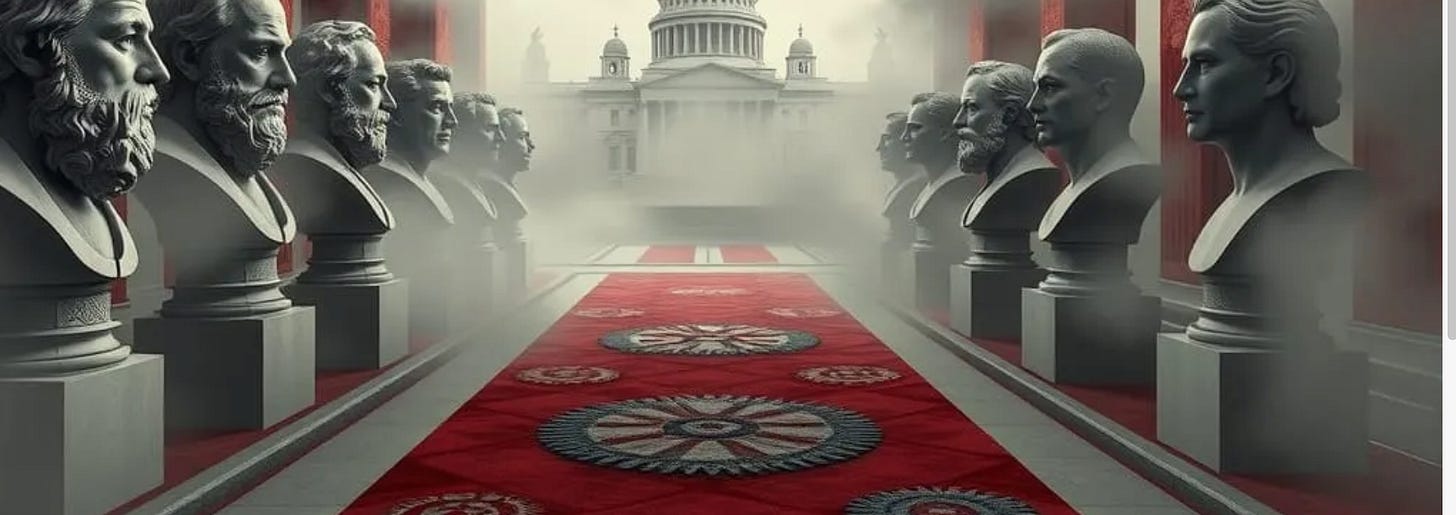From William Bolts to Jeff Bezos: John Cassidy Writes the Story of Capitalism as Seen in the Mirror of Its Discontents & in the Imagination of Its Alternatives
I cannot claim that this is in any sense the Director’s Cut—the actual Democracy Journal review is a very different beast entirely. I was supposed to write a 2000-word review of John Cassidy’s Capitalism & Its Critics. I wrote 10,000, which I then boiled down to 7,000. I then started over again, and wrote 2000, which is what is going to appear. But there is enough good thought here that I want to let it out into the world…
Self-described as “a sweeping, dramatic history of capitalism as seen through the eyes of its fiercest critics…”, John Cassidy’s new book Capitalism & Its Critics has a very strong trinity of blurbs:
Capitalism and its Critics is everything that we’ve come to expect from John Cassidy. He weaves an engaging and trenchant discussion of key critics of capitalism over its more than 200 years into a history of capitalism itself. The battle is not only about economic ideas, but about the VERY nature of our society. Especially now, when some see the failures of capitalism as more than a little responsible for the Trumpian oligarchy, while others see its successes as ushering in a new era of AI-led prosperity, this is an illuminating and essential read. — Joseph Stiglitz , winner of the Nobel Prize in Economics and author of The Road to Freedom: Economics and the Good Society.
And:
Fascinating and informative. The history of capitalism is told through the eyes and legitimate concerns of its most articulate critics. This is intellectual history at its best. Essential reading for anyone who wonders how the modern world wandered off course. — Simon Johnson, winner of the Nobel Prize in Economics and coauthor of Power & Progress.
And
John Cassidy’s Capitalism & Its Critics is an impressive history of arguments about capitalism, from the industrial age to our time. Clear and accessible, it is an invaluable touchstone for current debates about economic renewal in our post-globalization moment. — Michael Sandel, author of The Tyranny of Merit.
What do I think? Cassidy has written a panoramic intellectual journey through the turbulent, often tragic chameleon’s progress of something called capitalism. It is not an ordinary history—it’s a kaleidoscope of dissent, where the voices of critique echo overwhelming and loud. Cassidy’s cast of characters helps us rethink the system we often take for granted. Critics have always claimed they are heralds of its funeral, but the system keeps mutating. And so critiques of capitalism aren’t just academic, they are survival tools.
Cassidy opens with the story of William Bolts and the East India Company–not the usual starting point for histories of capitalism, but a brilliant one. Bolts, a former Company man turned whistleblower, exposed the violent contradictions of a corporation that had become sovereign in Bengal. Cassidy’s point here is not simply that early capitalism was brutal (it was), but that from the beginning, capitalism’s critics recognized the perils of combining monopoly, military force, and private profit. The themes of rent extraction, corporate overreach, and regulatory capture that Bolts illuminated in the 1770s echo loudly in our own age of Amazon, Google, Facebook—and Trump.
Throughout, Cassidy maintains a commitment to telling capitalism’s history through the eyes of its critics. This is, he admits, a conceit. But it is one that pays off handsomely. Consider his treatment of Marx. Cassidy focuses on Marx’s intellectual evolution—from the romantic alienation of the 1844 Manuscripts to the attempt at rigor trying to build an analytical theoretical orrery of surplus value and commodity fetishism. He sets Marx in motion–both literally, across Paris, Brussels, and London, and intellectually, in dialogue with Ricardo, Hegel, and the tumultuous world of 1848 and after. Marx is not an all-wise Dante-like guide here; he is a man struggling to understand the whirling, contradictory dynamism of capitalist development.
Cassidy’s Keynes, similarly, is rescued from the caricature of technocratic demand-management. The Keynes we meet is the architect of a fragile compromise—a world where markets are tamed but not abolished, and where the state becomes capitalism’s housekeeper. Cassidy gives us Keynes the moralist, Keynes the Cassandra of Versailles, Keynes the designer of Bretton Woods—ever wary of instability, ever distrustful of laissez-faire, but never tempted by revolutionary rupture. The contrast with his intellectual foil Friedrich von Hayek, who makes his appearance in the Thatcherite chapter, is deftly drawn.

